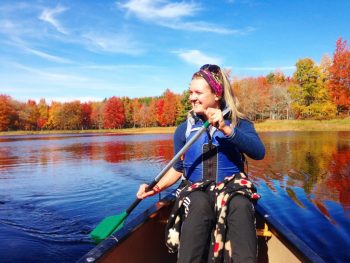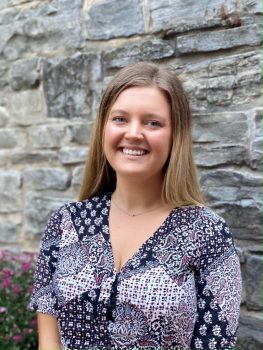
I worked at summer camps and in the outdoor education industry for nearly a decade. I started as a camp counsellor and kept working at various camps until my most recent job as a full-time Assistant Director. Every year I went back, people told me to “get a real job”. Though I was often confident that the experience I was gaining was valuable and real, these comments lingered during moments of doubt. Was that true? Was I wasting my time?
My response when people would tell me to “get a real job” was often to explain my role to them; summer camp is a place that is very insular, and if someone has never been they typically picture what they know from movies. I explained to them that I loved my job; I liked the people, I liked living in nature, I liked the sense of community and the sense of responsibility. I also really liked the variety. I got to try out small portions of many different functional roles; we ran our social media channels, planned and executed in-person and online events, worked with alumni and various stakeholders, managed budgets, supervised staff, oversaw daily operations, and maintained positive client relationships. Every day was fresh. There were days when the job was extremely challenging and draining, but very seldom did I find myself bored.
Delivering this speech repeatedly, I became even more passionate and certain that the transferable skills I was gaining were going to serve me in any avenue. Not only did I have experience in all the areas I mentioned, but I had built leadership and coaching skills, resilience, analytics and problem-solving skills, and confidence. I had previously considered doing an MBA but had brushed it off because I did not have any formal business training. Once I was conscious of how much knowledge I was absorbing through my role, I started considering an MBA again. I wanted to continue working in roles where every day was different. I am passionate about leadership and leading teams of people and knew my MBA would be an asset for such positions moving forward.
Entering the program, I was still a bit nervous about my lack of formal business education, and that people would have a negative or incomplete perception of the camping industry. What I quickly came to learn was that my experiences rivalled the experiences of people coming from any industry; some people had years of experience working in finance, which I did not, but not many had experience supervising a team of 85 staff members, which I did. As I have navigated our various courses, one thing that has stood out to me is that different people are experts in different subjects. Everyone has their strengths, and through collaboration and group work are willing to share these strengths and this knowledge with their teammates, fostering a positive peer learning environment. I have many people I can learn from in courses like Financial Accounting, Operations Management, and Financial Management, but I also have expertise that I can share with my peers in Leadership, Sustainability, Indigenous Business Environments, and Managing People and Organizations.
So, if you are like me, coming from a non-traditional business background and questioning if an MBA is right for you, look at the transferable skills you have learned, and look at where you want to go in the future. If you feel you have gained valuable skills from your work experience, but want to change industries, change functional roles, or learn to navigate the wider business landscape, then I encourage you to apply.
……………………………………………………………………………………………………………………………….
About the Author

Emma is a member of the full-time MBA program at the Beedie School of Business, is currently the captain of the Net Impact Case Competition Team, and is a Student Ambassador. With a background in outdoor education and the non-profit sector, she has a passion for bringing people together, spending time outdoors, and leadership. In her downtime, you can find her reading a book, watching hockey, or playing with her dog.